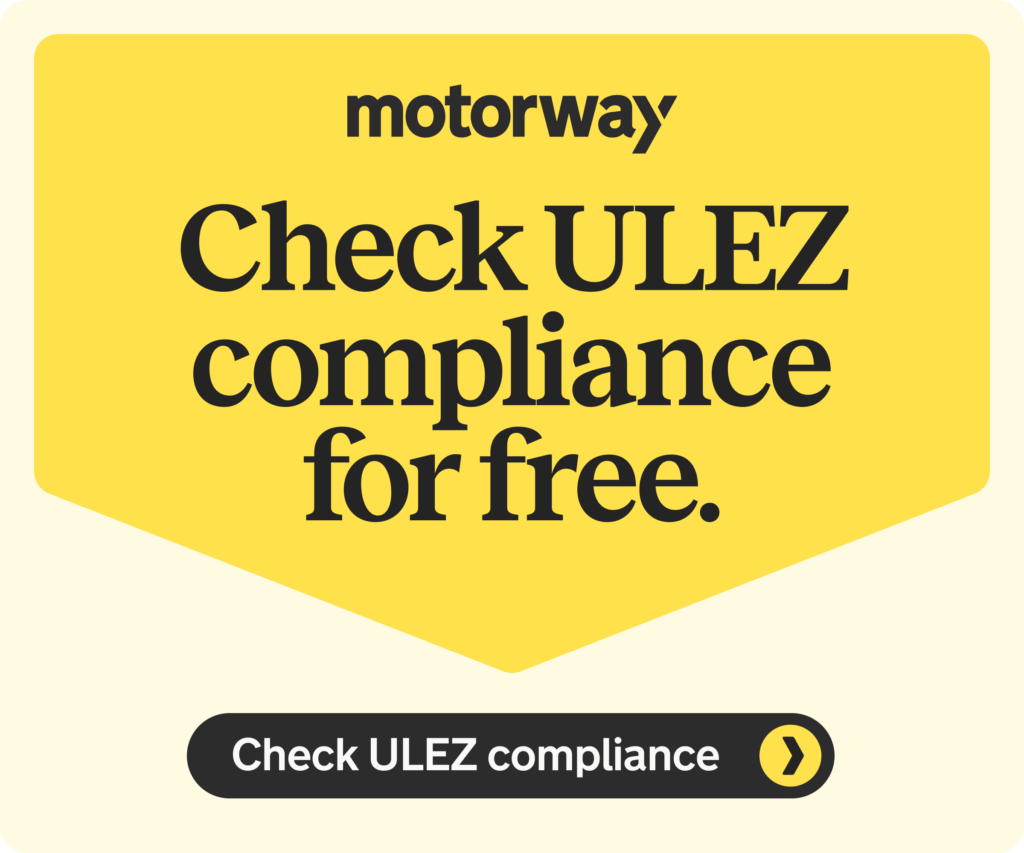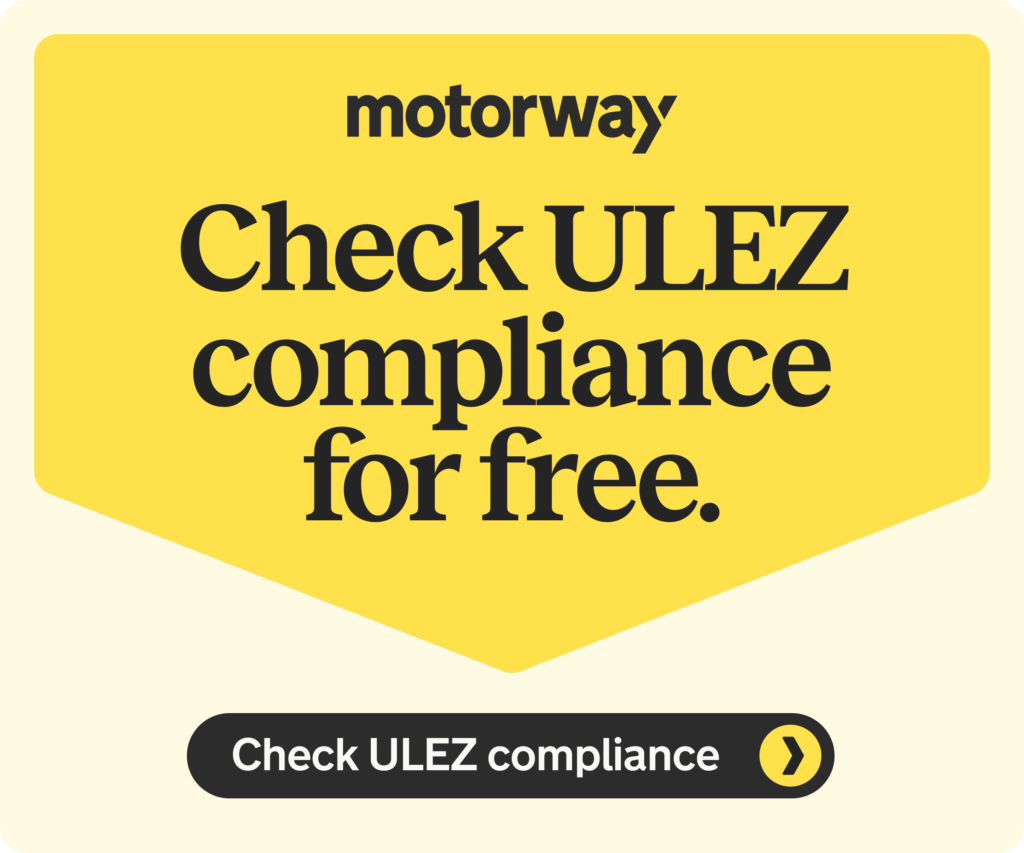In 2017, the European Commission notified Birmingham City Council that it was required to clean the city’s air by 2020 – and that failure to do so would result in the council incurring a £60 million fine.
The city’s plans for a Clean Air Zone (CAZ) were approved by the UK government in March 2019 – and were originally scheduled to be brought in in January 2020. However, the outbreak of the COVID-19 pandemic meant that implementation of the CAZ was delayed. Birmingham’s CAZ came into force on June 2021.
In this ultimate guide to the Birmingham Clean Air Zone, we’ll look at the following:
- What is the Birmingham Clean Air Zone?
- What area does the Birmingham Clear Air Zone cover?
- How much will it cost to travel within the CAZ?
- What happens if you don’t pay the daily charge?
- Should drivers using the CAZ buy electric vehicles?
- What does the CAZ mean for the second-hand car market locally?

What is the Birmingham Clean Air Zone?
The Birmingham Clean Air Zone covers an area of the city where it was deemed essential to improve air quality, with the aim being to cut levels of NO2 in the air to a maximum average of 40μg/m3. The plan is to achieve this by deterring high-polluting vehicles from entering the area.
The introduction of the CAZ should see an improvement in air quality in and around Birmingham, which will benefit the health and environment of everyone living and working in the city.
Whilst high-polluting cars and vans will not be banned in the zone, they will have to pay a daily charge in order to travel within it.
What area does the Birmingham Clear Air Zone cover?

Birmingham’s Clean Air Zone will cover an area of the city inside the inner ring road (A4540 Middleway). The Birmingham CAZ map above shows the specific area the clean air zone will cover across the urban centre.
It will cover the whole city centre, including Digbeth, Deritend, and the Southside district containing the Chinese Quarter and Gay Village, the Jewellery Quarter, plus areas of Highgate, Newtown and Bordesley.
How much will it cost to travel within the CAZ?
The Birmingham Clean Air Zone will operate all year round – there are applicable charges 24 hours a day, 365 days a year.
Not every vehicle will be subject to the daily charge however. For example, if you own a vehicle that meets the following emission standards, you will not need to pay:
- Euro 4 or better for petrol engines
- Euro 6 (VI) or better for diesel engines
Most diesel and petrol electric hybrids should meet the relevant emission standards (though owners should check this before travelling in/through the CAZ); and all fully electric or hydrogen fuel cell powered vehicles will be exempt from charges.
For non-compliant cars and vans, taxis (hackney carriages and private hire), LGVs and minibuses (up to and including 3.5 tonnes) the daily cost of travelling in/ through Birmingham’s CAZ will be set at £8.
For vehicles weighing in over 3.5 tonnes – such as lorries, buses and coaches – the charge will be set at £50 per day.
The charges will be applied daily – which means that any non-compliant vehicle that has paid to drive in the CAZ on a particular day will be able to do so without limit on that day.
Drivers that actually live within the CAZ with non-compliant vehicles will be exempt from the daily charge for the first two years. Likewise, any vehicles that are usually located within the CAZ – for example, outside a place of business – will be exempt from paying the daily charge, as long as the vehicles are parked and not driven.
Non-compliant vehicles with a displayed disabled badge will be permanently exempt.
A complete list of exemptions to the Birmingham CAZ is available here.
What happens if you don’t pay the daily charge?
Those drivers of non-compliant vehicles, that have not been exempted, and subsequently discovered to have been travelling inside the boundary of the CAZ without having paid the requisite charge will incur a standard fine of £120. Though, under current proposals, this fine will be reduced to £60 if paid within fourteen days.
Drivers that disagree with the £120 penalty charge notice (PCN) can appeal to Birmingham City Council. However, in the event that the council stands by the fine, drivers are then advised to appeal to the Traffic Penalty Tribunal (TPT) – the independent organisation that adjudicates on traffic penalty disagreements.
Should drivers using the CAZ buy electric vehicles?
With the UK switchover to electric vehicles now scheduled for 2035 and stricter anti-pollution restrictions being introduced across the globe, it certainly seems that the future for motoring is electric.
Buying an electric vehicle will also allow you to avoid any charges in Birmingham’s Clear Air Zone – and, fortunately, the choice of electric cars is increasing all the time. Moreover, the cost of new electric vehicles is falling month on month, and there are a range of government incentives available to convince drivers to make the switch to green vehicles.
We’ve created a guide to electric cars to explain all the details about buying, selling, and living with an alternative fuel vehicle.
If you are planning to go green with an electric vehicle, it is worth keeping in mind that some electric cars have suffered from poor depreciation values, which can mean you’re stuck driving the same vehicle longer than you might have planned; or you should be prepared to take a big loss on your investment. Fortunately, our guide to car depreciation can help you avoid the worst outcomes.
The major benefit of buying an electric vehicle is that the emission standards are expected to increase in the future – and you will be covered. Whereas, petrol and diesel cars are likely to see even greater costs and restrictions in the near future.

What does the CAZ mean for the second-hand car market locally?
Second-hand cars that are compliant will be in greater demand and will most likely do well from the introduction of Birmingham’s Clean Air Zone.
Whereas, it is probable that the vast majority of cars on the second-hand market – older, high-polluting vehicles – will see a corresponding sharp decline in demand in and around the Birmingham area following the CAZ’s introduction.
Not only will owners of non-compliant vehicles face the daily cost of entering the CAZ, but also the rising cost of road tax and fuel and an increased difficulty in sourcing replacement parts locally.
Even outside the CAZ, the value of diesel cars has dropped since scrappage plans were announced, and there is the very real risk that the same could soon happen to petrol vehicles.
If you’re looking to sell an older, internal combustion engine (ICE) car or van, in or around the Birmingham area, it makes sense to do some internet research and see what prices are available on classified websites, most of which operate at a national level – and are, consequently, less likely to be affected by the local drop in demand of CAZ non-compliant vehicles.
However, for a fast, easy, and completely free method of finding out the best price when selling your vehicle (CAZ compliant or non-compliant), Motorway can find your best offer from more than 5,000 verified dealers – a nationwide network that can help you find the highest price for your car or van.

Selling your car?
Read about everything you need to know about how to sell your car with more guides here. There’s a lot to learn as Clean Air Zones and emissions standards in the UK change in the run up to 2035.
